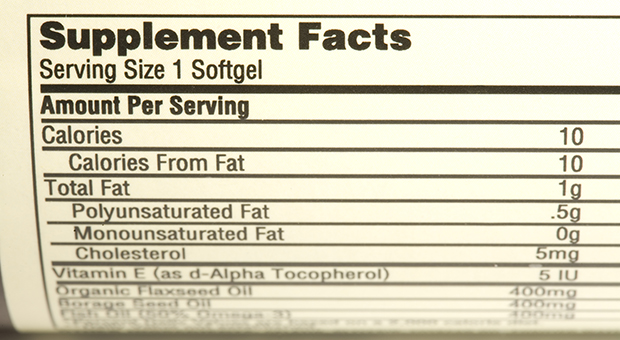The Medical Minute: How fat, salt and sugar can be good for you

When it comes to healthy eating, the villains are constantly changing.
It used to be fat that was the bad guy. So people started eating fat-free crackers, low-fat cookies and other carb-heavy foods that left them feeling hungry.
Then carbs came under fire, and people flocked to fat-and-protein heavy diets.
“I'm not sure the pendulum has stopped swinging yet because we're still talking about all these different things,” said Liz Reid, a clinical dietician at Penn State Health Children’s Hospital.
“I think often we look at food and pull out one or two nutrients and say that is the whole story,” she said. “What we need to talk about is not only what is in food, but how to nourish ourselves – not just getting the essential nutrients, but getting them in a way that is satisfying so we stop thinking about food so much – when we ate last, when we're going to eat and how many calories we're eating.”
So, instead of billing fat, salt and sugar as an evil trifecta, Reid suggests it's more useful to understand their role in a balanced diet.
Fats are necessary because they are part of all cell membranes in the body, and part of hormones and neurotransmitters, she said. Health professionals have divided fats into good and bad categories, working to wipe out saturated and trans fats, while encouraging consumption of especially omega-3 fatty acids and unsaturated fatty acids that come from foods such as walnuts, fatty fish, avocados, flax seed, sunflower and olive oil.
“You need fat to absorb fat-soluble vitamins like A, D, E and K,” Reid said. “That's why some health professionals would recommend that it's better to use full-fat items sometimes rather than fat-free ones that are loaded with sugar and chemicals.”
Some shelf-stable baked goods add gums, gels and stabilizers to replace the fat, and they can upset the stomach. Or, they have hydrogenated oils and fats. “No one thinks those are good for you,” Reid said. Items such as salad dressings may add artificial sweeteners, colors and sugars to make up for less fat. “You're better off making your own,” she said.
When it comes to salt, up to 3,000 mg a day is fine for most Americans. The trend toward sea salt and Kosher salt may help you be satisfied with less, but because those salts don't contain the iodine of table salt, you'd need to get it through other sources such as fish or vegetables. Iodine is necessary for production of thyroid hormones, which control metabolism and other bodily functions.
The glucose that comes from sugar and carbs is important for the brain and other organs, but Reid urges people to be smart about where their glucose comes from.
“You want to get carbohydrates from whole grains, vegetables and fruits and eat more whole foods and fewer processed foods.”
Although fruit has natural sugars, it also provides fiber and antioxidants that are important for the body. Reid advocates getting that sugar from whole fruit and getting your fluid requirement met with water rather than juice.
In general, Reid recommends eating a variety of foods, including local produce, when possible. “You can never go wrong with more fruits and vegetables.”
Learn more:
- The Medical Minute: The skinny on trans fat
- The Medical Minute: Some thoughts about organics and “superfoods”
The Medical Minute is a weekly health news feature produced by Penn State Health Milton S. Hershey Medical Center. Articles feature the expertise of faculty physicians and staff, and are designed to offer timely, relevant health information of interest to a broad audience.
If you're having trouble accessing this content, or would like it in another format, please email Penn State Health Marketing & Communications.
